May 20, 2023
Vitamin D, often known as the sunshine vitamin, plays a pivotal role in our physical and mental health. This essential nutrient, primarily absorbed from sunlight exposure, is critical for bone health, immune function, and—importantly—mental well-being. This post explores how maintaining optimal levels of Vitamin D can combat mood disorders and boost overall mental health.
Mauris non dignissim purus, ac commodo diam. Donec sit amet lacinia nulla. Aliquam quis purus in justo pulvinar tempor. Aliquam tellus nulla,sollicitudin at euismod nec, feugiat at nisi. Quisque vitae odio nec lacus interdum tempus. Phasellus a rhoncus erat. Vivamus vel eros vitae est aliquet pellentesque vitae et nunc. Sed vitae leo vitae nisl pellentesque semper.
1. Understanding Vitamin D and Mental Health: Vitamin D receptors are widely present in the brain, which suggests that this vitamin plays a significant role in mood regulation and brain health. Research links Vitamin D deficiency to an increased risk of mood disorders, including depression and anxiety. Adequate Vitamin D levels support the production of serotonin, a neurotransmitter that influences everything from mood to sleep regulation.
2. Vitamin D and Depression: Several studies have found that low Vitamin D levels are associated with depression, particularly in older adults. Supplementation of Vitamin D can potentially ease symptoms in individuals with clinically low levels, offering a simple yet effective way to improve mental health outcomes.
3. How to Get Enough Vitamin D:
- Sunlight Exposure: Just 10-15 minutes of sun exposure a day can help most people produce sufficient Vitamin D.
- Diet: Incorporate Vitamin D-rich foods into your diet, such as fatty fish (salmon, mackerel), cheese, egg yolks, and fortified products like milk and cereal.
- Supplements: In regions with less sunshine, Vitamin D supplements can be a practical solution. Always consult with a healthcare provider before starting any supplement regimen.
4. The Mental Health Benefits of Adequate Vitamin D Levels: Maintaining adequate Vitamin D levels can enhance cognitive function, improve mood, and increase overall emotional well-being. Individuals with adequate Vitamin D levels also report better sleep quality and more consistent daily energy levels.
Conclusion:
Vitamin D, while often overlooked, is a crucial nutrient for mental health. Ensuring you receive enough sunlight, eat the right foods, or take supplements can have a profound impact on your mood, cognitive function, and overall mental well-being. As we continue to explore the connections between vitamins and mental health, Vitamin D remains a key area of interest for researchers and health professionals alike.
Concerned about your Vitamin D levels and their impact on your mental health? Contact Evolving Minds Psychiatry today. Our dedicated team of professionals is ready to help you assess your nutritional needs and provide holistic care tailored to your mental well-being. Visit our website or give us a call to learn more about how we can support your journey to better mental health with personalized treatment plans and expert guidance.





